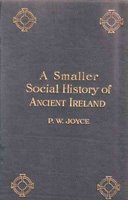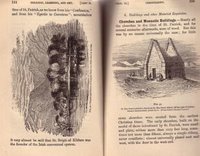Here are the latest:
This is a tiny book packed with lots of text, pictures, and references. I think it will be worth the price. So far, here's one phrase I've highlighted: Christianity probably first came to the Celts in the way it first came to most of the rest of the world: through informal contacts by 'everyday' Christians, most likely traders..."
I am really excited about getting into this book. The subtitle is: Rule and Writings of Early Irish Monks. The rules of the ancient monastic orders are here, as much as could be translated from centuries old documents. Things like: "Do not conceal your bodily faults when you speak to God in tears."--from The Rule of Ciaran, late 7th or 8th century. In the back are litanies and poems, which I've only just begun to look at. The poems, of course, have been translated into English, which is no small feat to make them still poetic. Here's one translated by Robin Flower:
The maker of all things,
The Lord God worship we;
Heaven white with angel's wings,
Earth and the white-waved sea.
The Lord God worship we;
Heaven white with angel's wings,
Earth and the white-waved sea.
And finally, I'm really enjoying my copy of a book written a hundred years ago: A Smaller Social History of Ancient Ireland by P.W. Joyce. This has lots of good information that I can use while creating a fictional world for my novels.





